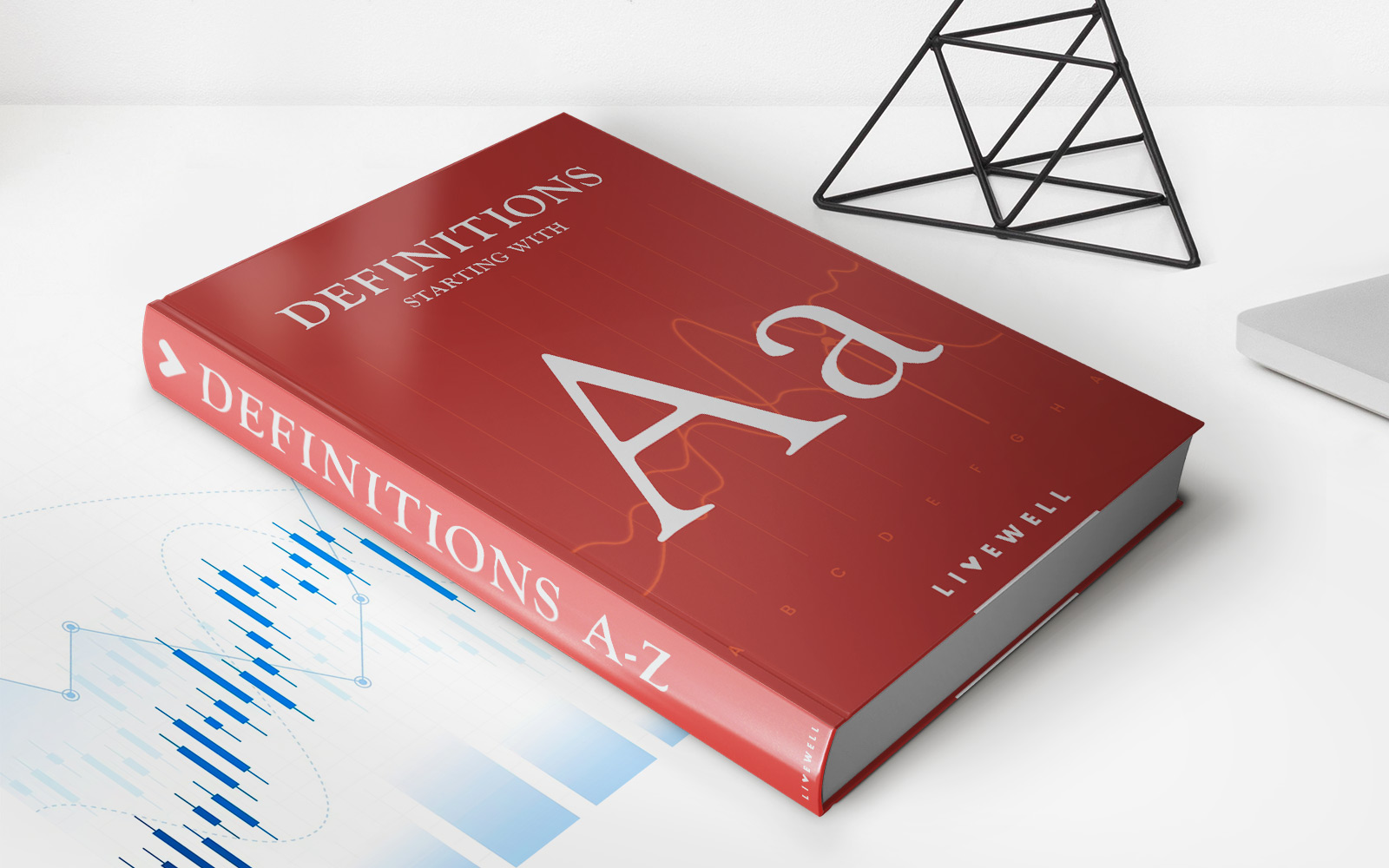

Finance
How Much Does An Auto Insurance Agent Make
Published: October 5, 2023
Looking to understand the financial aspect of becoming an auto insurance agent? Discover how much these professionals make and explore the potential earnings in the finance industry.
(Many of the links in this article redirect to a specific reviewed product. Your purchase of these products through affiliate links helps to generate commission for LiveWell, at no extra cost. Learn more)
Table of Contents
Introduction
Auto insurance agents play a vital role in the insurance industry, serving as the primary point of contact for individuals looking to protect their vehicles. These professionals are responsible for assessing customers’ needs, providing them with suitable coverage options, and guiding them through the process of purchasing insurance policies. But how much do auto insurance agents make?
The salary of an auto insurance agent can vary depending on various factors such as experience, location, education, and the size of the insurance agency. In this article, we will delve into the details of what influences an auto insurance agent’s salary and provide an overview of the average salary range for professionals in this field.
Additionally, we will explore the commission and bonus structures that can significantly impact an auto insurance agent’s income. Furthermore, we will touch upon the education and experience requirements for becoming an agent and discuss the job outlook for individuals interested in pursuing a career in this field.
Whether you are considering a career as an auto insurance agent or simply curious about the earning potential in this industry, this article aims to provide you with valuable insights into the salaries of these professionals.
Factors that Influence Auto Insurance Agent Salaries
The salary of an auto insurance agent is influenced by various factors that can impact their earning potential. These factors include:
- Experience: Like many professions, experience plays a significant role in determining an auto insurance agent’s salary. Agents with several years of industry experience often earn higher salaries compared to those who are new to the field.
- Location: Geographic location is another crucial factor that affects an agent’s salary. Agents working in metropolitan areas or regions with a high cost of living generally earn higher salaries compared to those in rural areas.
- Size of Insurance Agency: The size of the insurance agency can also impact an agent’s salary. Agents working for larger, well-established agencies often have access to a wider client base and more opportunities for earning commission or bonuses.
- Specialization: Some auto insurance agents specialize in specific niches, such as commercial vehicle insurance or high-risk drivers. Specializing in a specific area can often lead to higher earnings as these agents cater to a more targeted market.
- Performance Metrics: Many insurance agencies have performance metrics in place, such as sales targets or customer retention goals. Agents who consistently meet or exceed these metrics may be eligible for higher salaries or performance bonuses.
- Licensing and Certifications: Obtaining additional licenses and certifications in the insurance field can also influence an agent’s salary. Agents with specialized certifications or designations may be seen as more knowledgeable and valuable, leading to better compensation.
It’s important to note that while these factors can influence an auto insurance agent’s salary, the specific salary range can still vary significantly. Therefore, it’s crucial for individuals interested in pursuing a career as an auto insurance agent to thoroughly research and consider these factors to make an informed decision about their earning potential in the industry.
Average Salary Range for Auto Insurance Agents
The average salary range for auto insurance agents can vary depending on several factors, including experience, location, and the size of the insurance agency they work for. On average, auto insurance agents in the United States earn between $30,000 and $100,000 annually. However, it’s important to note that these figures are estimates and may vary based on individual circumstances.
Entry-level auto insurance agents typically start at the lower end of the salary range, with average earnings ranging from $30,000 to $40,000 per year. As agents gain experience and establish themselves in the field, their salaries can gradually increase. Mid-level agents with a few years of experience can expect to earn an average of $50,000 to $70,000 annually.
Experienced auto insurance agents, especially those with a strong track record of success, can earn significantly higher salaries. Top-performing agents who consistently meet or exceed their sales targets may have the potential to earn over $100,000 per year. However, it’s important to note that these higher salaries are often achieved through a combination of base salary, commission, and bonuses.
It’s worth mentioning that the salary range for auto insurance agents can also vary depending on their specialization within the industry. Agents who specialize in niche markets or cater to high-value clients may have the potential to earn higher incomes due to the specific nature of their clientele.
Additionally, geographical location plays a crucial role in determining salary ranges for auto insurance agents. Agents working in major metropolitan areas with a higher cost of living generally earn higher salaries compared to those in more rural or suburban areas.
While these salary ranges provide a general overview, it’s essential for individuals considering a career as an auto insurance agent to research industry trends and gather specific information about salaries in their desired location and market segment.
Commission and Bonus Structures
Commission and bonus structures are significant components of an auto insurance agent’s compensation. These additional incentives can significantly impact an agent’s overall earnings and provide motivation for achieving sales targets and delivering exceptional customer service. Here are some common commission and bonus structures in the auto insurance industry:
- Commission-based: Many auto insurance agents earn a significant portion of their income through commissions. Commissions are usually calculated based on the premiums generated from the policies they sell. The commission percentage can vary depending on the agency and the type of insurance product, but it typically ranges from 10% to 20% of the premium.
- Renewal Commissions: In addition to new policy commissions, some agents receive renewal commissions for policies that are renewed by their clients. Renewal commissions are typically smaller than new policy commissions and are a way to reward agents for building long-term relationships and maintaining a satisfied client base.
- Performance Bonuses: Insurance agencies often offer performance bonuses to agents who meet or exceed specific targets or metrics. These bonuses can be based on various factors such as sales volume, customer retention rates, or achieving specific business objectives. Performance bonuses can provide a significant financial boost to an agent’s income.
- Contests and Incentives: Insurance agencies sometimes organize contests or provide additional incentives to motivate their agents. This can include cash prizes, vacations, or other rewards for achieving specific milestones or surpassing sales goals. These incentives not only increase an agent’s earning potential but also foster a competitive and rewarding work environment.
- Profit-Sharing Programs: Some insurance agencies may have profit-sharing programs in place, where agents receive a portion of the company’s overall profits based on their performance. Profit-sharing programs can provide agents with the opportunity to earn additional income beyond their commissions and bonuses.
It’s important for auto insurance agents to have a clear understanding of their agency’s commission and bonus structures. This information can help them set realistic income goals, manage their performance, and make informed decisions about their career progression.
Overall, commission and bonus structures offer enticing opportunities for auto insurance agents to increase their earnings and enjoy the benefits of their hard work and success in the industry.
Education and Experience Requirements
The education and experience requirements for becoming an auto insurance agent can vary depending on the state and the specific insurance agency. While there are no strict educational requirements to enter the field, having relevant knowledge and skills can provide a competitive advantage. Here are some common education and experience requirements for auto insurance agents:
- High School Diploma or Equivalent: Most insurance agencies require candidates to have at least a high school diploma or GED. This serves as a foundation for basic communication, math, and critical thinking skills necessary for the role.
- Licensing: Auto insurance agents are required to obtain the appropriate licenses to sell insurance in their respective states. The licensing requirements vary from state to state but typically involve completing pre-licensing courses, passing a state exam, and maintaining the license through continuing education courses.
- Continuing Education: Even after obtaining a license, auto insurance agents must often participate in continuing education to stay up-to-date with industry regulations, product knowledge, and sales techniques.
- Industry Certifications: While not always mandatory, obtaining industry certifications can enhance an auto insurance agent’s professional credentials and demonstrate expertise in specific areas. Popular certifications include Certified Insurance Counselor (CIC) and Chartered Property Casualty Underwriter (CPCU).
- Sales Experience: While not always required, having prior sales experience can be beneficial in the role of an auto insurance agent. Strong interpersonal skills, the ability to communicate effectively, and a customer-focused approach are essential for building relationships and closing sales.
- On-the-Job Training: Many insurance agencies provide on-the-job training to newly hired auto insurance agents. This training typically covers product knowledge, sales techniques, agency procedures, and systems.
- Networking and Professional Development: Engaging in networking activities and attending industry events can contribute to an auto insurance agent’s professional growth. Building relationships with other industry professionals can provide valuable insights and potentially lead to career advancement opportunities.
While formal education can provide a solid foundation, experience, training, and continuous learning are key components of success in the auto insurance industry. As agents gain more experience and expand their knowledge, they have the potential to access higher-paying job opportunities and increase their earning potential.
Job Outlook for Auto Insurance Agents
The job outlook for auto insurance agents is generally positive, with a steady demand for these professionals. As long as individuals continue to own and operate vehicles, the need for auto insurance coverage will persist. However, the job market can be competitive, and success in this field often depends on various factors.
One factor that can influence the job outlook for auto insurance agents is technological advancements. With the rise of online platforms and digital tools, customers have more options when it comes to purchasing insurance. This shift towards digital channels has led to changes in customer preferences and purchasing behaviors. Auto insurance agents who embrace technology, adapt to changing customer demands, and leverage online platforms can position themselves for success in the evolving landscape.
Furthermore, the ability to provide exceptional customer service and establish strong relationships with clients remains vital in this industry. Auto insurance agents who prioritize customer satisfaction, personalization, and a consultative approach to policies are more likely to thrive in the competitive market. Building a reputation for being trustworthy, knowledgeable, and dependable can lead to repeat business and positive referrals.
Additionally, specializing in specific areas or niches within auto insurance, such as commercial vehicle insurance, classic car insurance, or rideshare insurance, can open up opportunities for auto insurance agents. By catering to specific segments of the market, agents can differentiate themselves from competitors and attract customers with unique needs.
The job outlook for auto insurance agents may also be influenced by economic factors and market trends. Changes in the economy, consumer behaviors, and regulations can impact the demand and pricing of auto insurance policies. Staying informed about industry trends, market conditions, and emerging technologies can help agents proactively adapt to changes and seize opportunities.
Overall, while the auto insurance industry continues to evolve, there will always be a need for auto insurance agents who can offer personalized guidance, policy recommendations, and exceptional customer service. With the right blend of skills, knowledge, adaptability, and customer-centric focus, auto insurance agents can find long-term success in this field.
Conclusion
Becoming an auto insurance agent can be a rewarding career choice both financially and professionally. While the salary range for auto insurance agents can vary, with factors such as experience, location, and agency size playing a role, the potential for earning a competitive income exists. Commission and bonus structures further supplement an agent’s earnings, providing incentives for meeting sales targets and delivering exceptional service.
Education and experience requirements for auto insurance agents are generally flexible, with a high school diploma or equivalent and state licensing being the standard. Continued education, industry certifications, and sales experience can enhance an agent’s qualifications and marketability.
Despite potential challenges, such as technological advancements and changing customer preferences, the job outlook for auto insurance agents remains positive. The demand for auto insurance coverage is consistent and ongoing, and agents who adapt to industry changes, provide excellent customer service, and specialize in niche markets can find success in the field.
In conclusion, individuals considering a career as an auto insurance agent should thoroughly research the industry, assess the market potential in their desired location, and consider their own strengths and interests. By staying informed, honing their skills, and embracing opportunities for professional growth, auto insurance agents can build a rewarding and prosperous career in this dynamic field.














